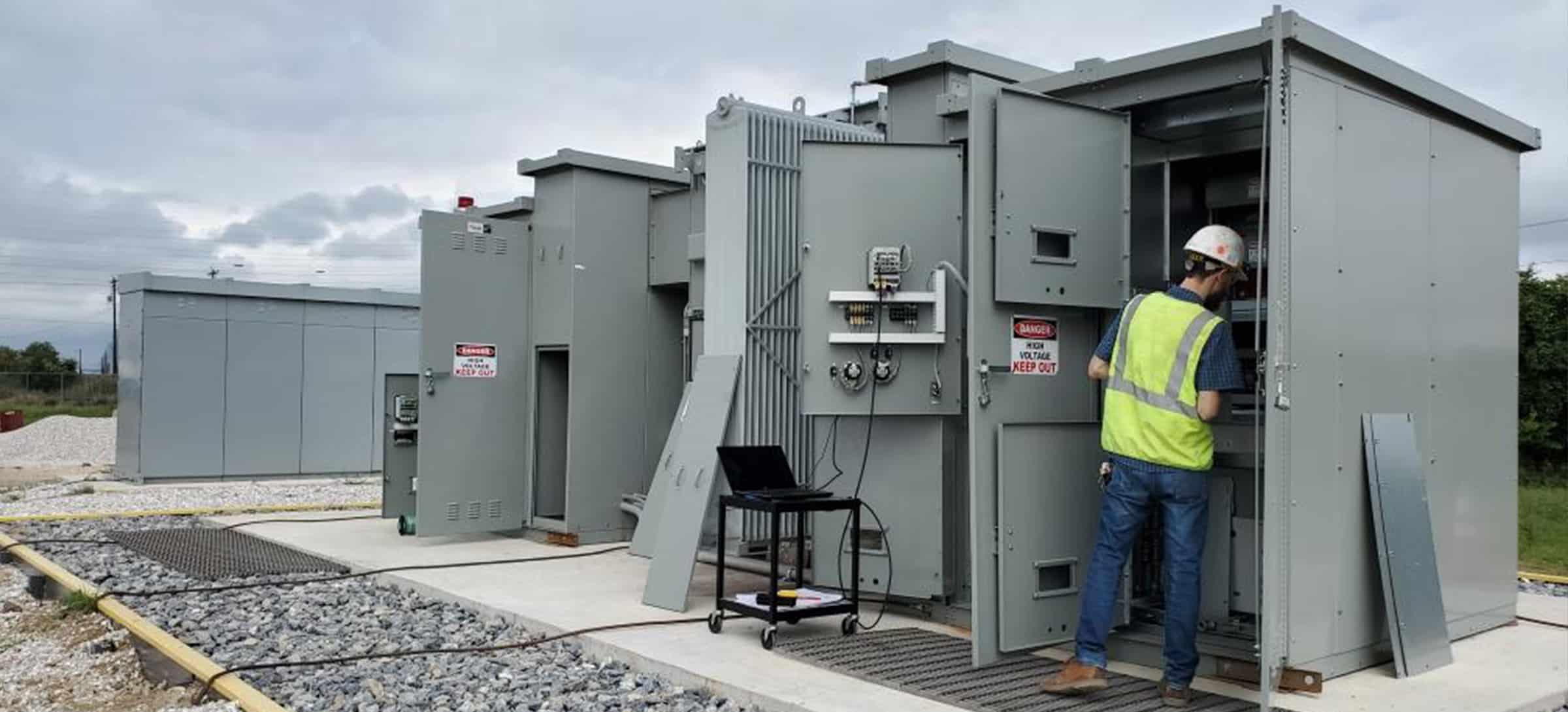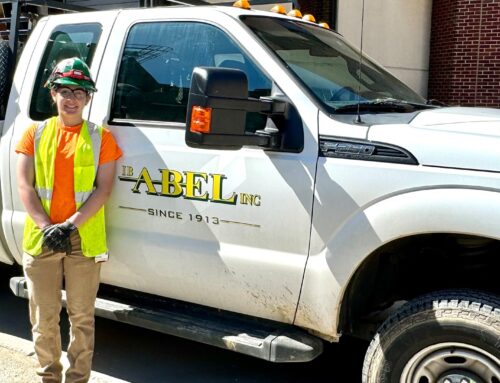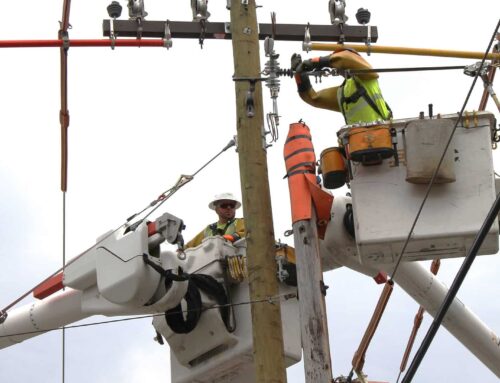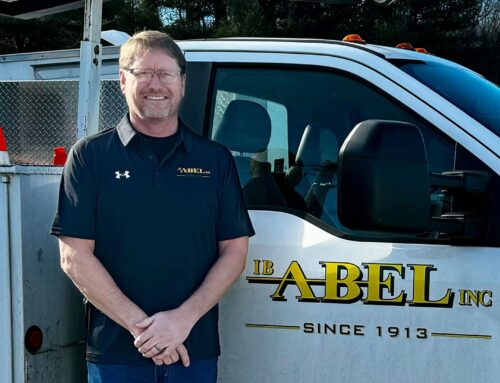What do electrical engineers do? Dedicated to excellence in design and offering best-in-class solutions, our talented in-house electrical engineering team is a valuable resource for our clients and a key part of our company as a whole. Not every electrical contractor has their own engineering department, but we find our in-house engineers to be crucial to successful partnerships across a wide variety of industries. Having engineers on staff allows us to provide comprehensive design-build capabilities and a full range of engineering services that create value for our clients.
But how does an I.B. Abel engineer spend the workday? And how did one of our own decide to become an engineer in the first place? For this second article in our ongoing “Day in the Life” series, we checked in with I.B. Abel Electrical Engineer Nik F. to ask those questions and more.
What is a Day In the Life of an I.B. Abel Engineer Really Like?
Nik has the opportunity to work from home as his base, but he shared that his job is very mobile most days. He often travels out to jobsites or will stop by the office when needed. Of course, he tends to start his day like many in an engineering work environment, checking emails and all communications and gearing up for one of several ways that his day might progress: doing computer-based design work for new construction, building additions, equipment upgrades and more, performing studies for new and existing buildings, or monitoring project progress/troubleshooting out in the field. Nik noted that his favorite part of his engineering job is actually being out in the field, which is an opportunity that is unique to I.B. Abel’s approach to electrical engineering jobs and services.
While each day can be different, there is a key character trait that Nik believes is a must-have for everyone in an electrical engineering position:

“You have to have a questioning attitude. As an engineer, it’s necessary in order to do your job extremely well and ensure that what you’re looking at and how you’re thinking about it is, in fact, correct. If you only ever take something at face value, you’re relying on what could possibly be someone else’s mistake. I look at everything and will understand it to my own knowledge, and I’m not afraid to raise a flag or question something if needed. Having that questioning attitude in this industry improves your work and design results as a whole.”
– Nik F
The Best Parts of Being an Electrical Engineer at I.B. Abel
I.B. Abel’s emphasis on teamwork and collaboration, which stems from a deeply held belief that our people are our greatest asset, means that our engineers are actively involved in the work going on at jobsites. Nik shared “electricians regularly call me to confirm troubleshooting next-steps, because they value my insight from the engineering perspective.” Similarly, he appreciates the feedback he receives from the field electricians on his designs, as they’re physically building them out. “It makes me a better engineer when I have the opportunity to work closely with them. We’re one team working towards the same goal.”
According to Nik, that direct connection to the field makes his job at I.B. Abel a better fit for him than the day-to-day work available in a more traditional engineering firm. While he spends a lot of time working on designs and drafting behind a computer, he also has the opportunity to get out on many site visits. I.B. Abel’s engineering services department is a “one-stop shop” and offers an unmatched experience that differs from a design-only firm. Nik personally loves that his day-to-day job responsibilities can vary and that there are always opportunities to grow.
Nik also noted that his relationship with his direct supervisor is positive, open, and collaborative, even though they live and work in different areas of Pennsylvania. “There’s a lot of knowledge-sharing between us. We are constantly checking work for each other and discussing ideas. Having those types of close relationships and knowing you have someone you can always call is extremely valuable.” Strong relationships within our teams ensure I.B. Abel’s success in attracting and retaining great talent, like Nik, who has been with the company since he graduated from Penn State in 2015.
Nik’s Insight on Choosing a Career Path for Electrical Engineers
“If physics and math come easily to you, you might be a future electrical engineer. That’s just one aspect of getting into the career, however. On-the-job training is essential, and one of the most important things engineers can do is pursue electrical engineering internships while still in school.”
– Nik F
Nik completed multiple internships while in college, including one at I.B. Abel and at electrical utility PPL. These practical learning experiences were the most valuable to shaping his career direction. In fact, he now enjoys continuing the tradition of recruiting and mentoring engineering interns whenever the department has the chance to bring them on board.
One other piece of advice Nik had to offer for early career engineers just beginning work was related to obtaining the PE (Professional Engineer) license, as he has done. This credential requires a lot of hard work and perseverance to earn. “You have to work under another PE for four years before you can take the licensing exam. This is a very specific process, and you have to keep a really detailed log of everything.” New engineers should be sure they know what they’re getting into when they begin working toward the PE license, but it is a significant accomplishment for those who wish to go for it!
Join a Team that Puts People First
Whether you’re an electrical engineer, project manager, electrician, or other professional in the electrical construction industry, I.B. Abel provides a satisfying career experience with unlimited opportunities to grow and excel. Learn how we remain committed to our culture of excellence, quality, and safety, investing in our people every step of the way since 1913. Visit our Careers page now to view our currently available positions.




